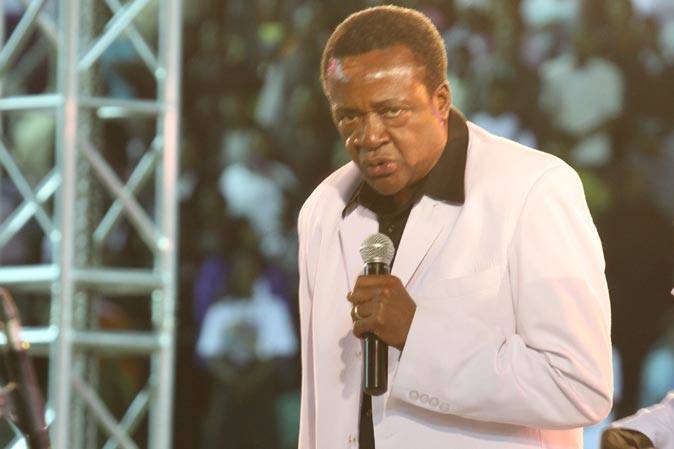
ZIMBABWE will this year hold its first elections in the social media era, raising interest in how social media networks may affect the political scene in the country. REPORT BY NQABA MATSHAZI
Social media networks like Twitter, Facebook and YouTube have often been regarded as democratising agents in countries like Zimbabwe with strict media laws and they will be put to the test with the coming elections.
Already, Zanu PF has voiced concerns about the use of social media networks and one of their resolutions at the party’s 2011 conference in Bulawayo was that these outlets have to be regulated.
“Although social networking sites have significantly contributed to the way people communicate, the need for a regulatory framework cannot be overemphasised … Family values are under threat from social media,” Zanu PF political commissar, Webster Shamu explained after the meeting. “The internet has also been promoting misinformation worldwide by spreading inaccurate information which people perceive as factual.”
Shamu was at it again last month, reiterating his will that social media and the internet be regulated.
With mobile penetration inching closer to 100% and with more people using social media and instant messaging, these networks may prove a game changer in the next election.
So far social media platforms are credited with the success of the Arab Spring in Egypt and Tunisia and the Occupy Movement in America, Europe and partly in Nigeria.
In March 2008, the MDC-T experimented with the idea.
- Chamisa under fire over US$120K donation
- Mavhunga puts DeMbare into Chibuku quarterfinals
- Pension funds bet on Cabora Bassa oilfields
- Councils defy govt fire tender directive
Keep Reading
They gave their election agents mobile phones so they could send text messages when results were posted outside polling stations, so the party could come up with its own figures for the elections.
Then, mobile phones were expensive and fewer people had them, but the experiment produced tremendous results for the party and they were able to triangulate their results with those provided by the electoral commission.
Now with cheaper and more platforms available, like WhatsApp and instant messaging, citizen journalism will likely grow and information regarding the elections will spread faster, therefore affecting the way the polls will pan out.
“We now have a developed telecommunications industry,” reckons Admire Mare, a doctorate candidate at Rhodes University in South Africa. “In that regard, social media will have an effect.”
He pointed out that some parties like the MDC and prospective candidates like Ezra Sibanda were effectively using social media, but he questioned whether Zimbabweans were politically conscious enough to be able to take advantage of such platforms.
“Ezra is coming from a place where social media is a big thing, but when you come here its different,” Mare said. “Here people use social media more for bragging and to connect with the diaspora rather than for political purposes.”
The PhD scholar said the onus was on civic society to create a political consciousness in Zimbabwe that would allow them to use the platforms more effectively.
He said the difference between Zimbabwe and Egypt was the difference between the level of political consciousness in the North African country and southern African one.
“Social media is not a magic bullet, what is needed is civic education to create political consciousness,” he said. “People are more interested in economic consciousness and this tends to be more about self-interest.”
However, on the flipside, Mare said Zimbabweans could avoid using social media, as there was a pervading fear that whatever they posted on social networks was being monitored.
He gave an example of Vikhas Mavhudzi who was arrested after he allegedly posted a comment on Prime Minister Morgan Tsvangirai’s wall that Zimbabwe could emulate the 2011 uprisings in Egypt.
“There are costs involved in talking about politics, there is a belief that Big Brother is watching,” Mare said. “Social media is two-faced in nature, it might be a democratising agent but it also brings about surveillance.”
Another social media PhD scholar, Stanley Tsarwe said social media worked best in open societies where people felt free to express themselves.
“These platforms work best in open societies, in restricted areas. Where democracy is curtailed, they may not work that well,” he said.
Tsarwe said despite limitations, social media was a democratising agent, as users generated their own content, instead of traditional media that was hierarchical.
‘Social media a democratising force’ Social media entrepreneur, Thamu Dube said social media was a democratising force, as it allowed users to engage with their leaders easily, but there were fewer Zimbabweans actively using the platforms and this curtailed its effects.
“In Zimbabwe social media activity is nascent, just over 1 million, compared to the likes of Egypt, Tunisia and Algeria who have a combined total of nearly 20 million Facebook users alone,” he said.
“One may argue that seeing as Zimbabwe’s population is lower, surely this is a substantial number, but there are other factors such as the rate of access and the engagement conversion stats which are again much lower compared to the Arab nations.
“There’s also the technology divide, large numbers of Zimbabwe’s voting population are in rural areas and they have no access to reliable internet connections, meaning this would render any chance of an Arab style uprising very difficult to co-ordinate.”
Dube said the fact that people like Youth Development, Indigenisation and Empowerment minister, Saviour Kasukuwere was on Twitter and Facebook, meant that despite opposition to social media, Zanu PF officials saw its intrinsic value.











